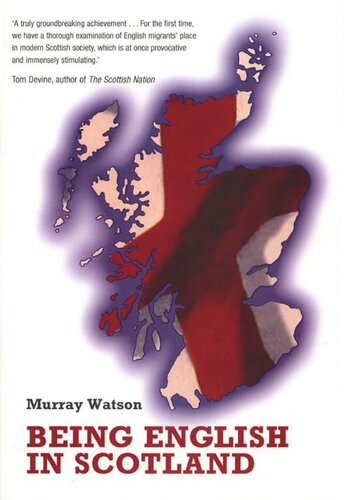

Most ebook files are in PDF format, so you can easily read them using various software such as Foxit Reader or directly on the Google Chrome browser.
Some ebook files are released by publishers in other formats such as .awz, .mobi, .epub, .fb2, etc. You may need to install specific software to read these formats on mobile/PC, such as Calibre.
Please read the tutorial at this link: https://ebookbell.com/faq
We offer FREE conversion to the popular formats you request; however, this may take some time. Therefore, right after payment, please email us, and we will try to provide the service as quickly as possible.
For some exceptional file formats or broken links (if any), please refrain from opening any disputes. Instead, email us first, and we will try to assist within a maximum of 6 hours.
EbookBell Team

4.0
26 reviewsGBS_insertPreviewButtonPopup('ISBN:9780748618590);
Boldly venturing into new territory, Being English in Scotland reveals how a massive increase of English settlers has unobtrusively formed Scotland's most significant migrant community in modern times. The history of relations between England and Scotland is always passionate and often controversial. What is extraordinary is that the pervasive spread and influence of English migration north of the Border has been largely ignored until now.
Using a range of different sources including oral history contributions from English people living all over Scotland, Murray Watson explores how the English merged into and contributed to Scottish society in the second half of the twentieth century. Many of the myths surrounding the English in Scotland are dispelled and what emerges instead is that the migratory experience has been extremely complex and multi-faceted in nature. The near-invisible absorption of so many English-born migrants has far-reaching implications for the host communities at a local, regional and national level, as well as influencing Scotland's economy, its demography, culture and society.
At a political and constitutional level, after a number of false starts, Scotland has gained some measure of devolved autonomy. And here, English migrants have shown a range of fascinating responses in the reconstruction of their own identities. In leaving behind the undoubted insecurities and uncertainties about what it means to be English, their reactions to moving to a country with strong traditions of national feeling has been intriguing and surprising.
The first comprehensive exploration of the complex process of English migration into Scotland, Being English in Scotland challenges us with as many questions as answers.
Key Features